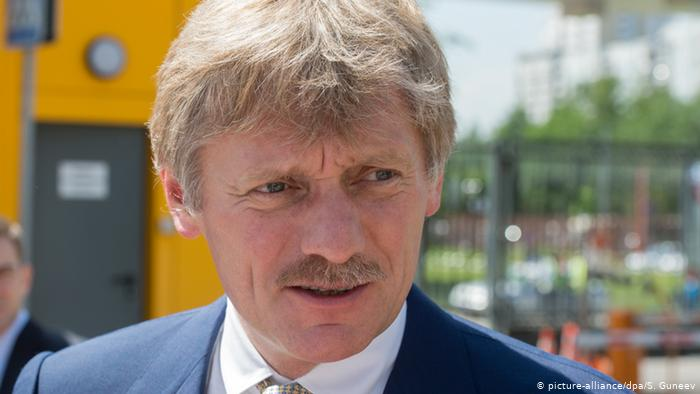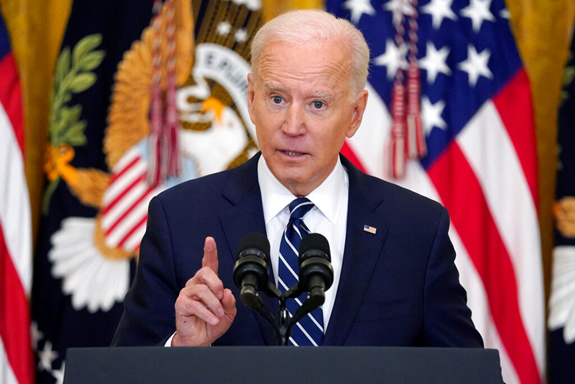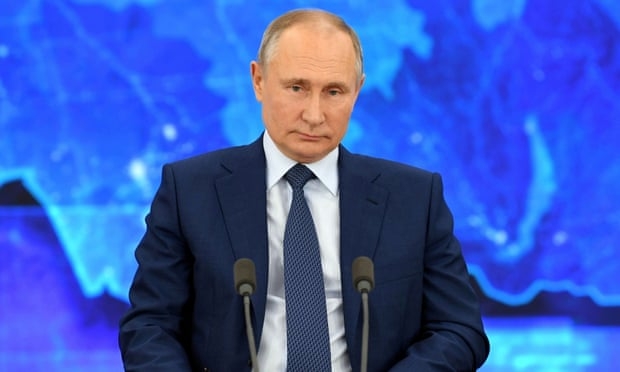Russia launches major clean-up operation after huge arctic fuel spill incident
Launching a major clean-up operation
According to NECN, a major clean-up operation has been launched in Siberia after more than 21,000 tons of diesel fuel was released into a river above the Arctic circle - threatening a pristine territory through a series of lakes and tributaries.
Russian President Vladimir Putin declared a federal emergency June 3 after berating Siberian officials for their slow response to the accident which took place near the city of Norilsk on May 29. While the majority went into the river, a further 5,000 tons of diesel was released onto land.
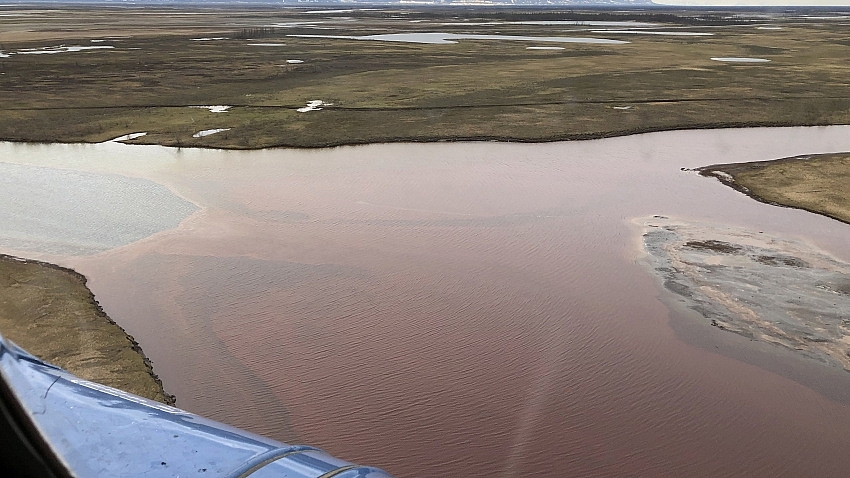 |
| A helicopter view of the site of a diesel fuel spill at Norilsk’s Combined Heat and Power Plant No 3. On May 29, a diesel. Photo: NBC News |
Describing it as “the first ecological incident of such a large scale above the Arctic circle,” Greenpeace Russia has warned that it could contaminate a vast swath of Russia’s Arctic for years if not properly contained.
Due to the remote nature of the incident, news of the disaster was slow to trickle out and reach Moscow. The regional governor of Krasnoyarsk, Alexander Uss, said in the meeting that he only became aware of the situation on Sunday after “alarming information appeared in social media." Other officials echoed his claim. “Why did government agencies only find out about this two days after the fact?” and angry President Vladimir Putin asked.
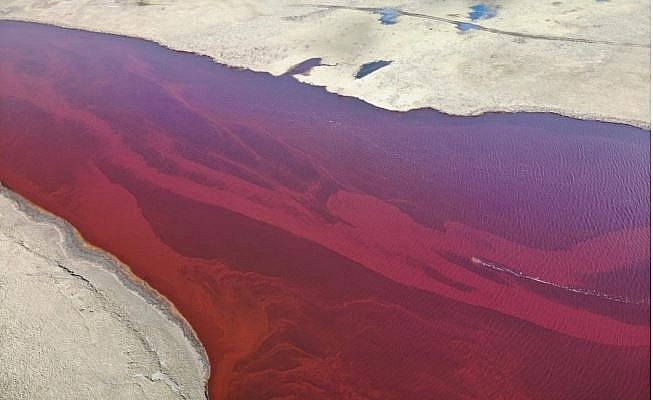 |
| Photo: Greenpeace |
Climate change could be the cause
The cause of the spill, in which 20,000 tons of diesel leaked from a reservoir owned by MMC Norilsk Nickel PJSC, hasn’t been determined but the company has suggested it could be the result of damage from melting permafrost. The rate of warming in the Arctic is twice as fast as the rest of the world, Bloomberg reported.
“The cause is yet to be determined and is likely a combination of both climate change and infrastructure-related factors,” said Dmitry Streletskiy, a professor at George Washington University.
The fuel spill in Norilsk is polluting land and rivers that drain into a lake linked to the Kara Sea. The lake that links to the Kara Sea has already been affected, Kommersant newspaper reported, citing a spokesman at the Federal Agency for Fishing.
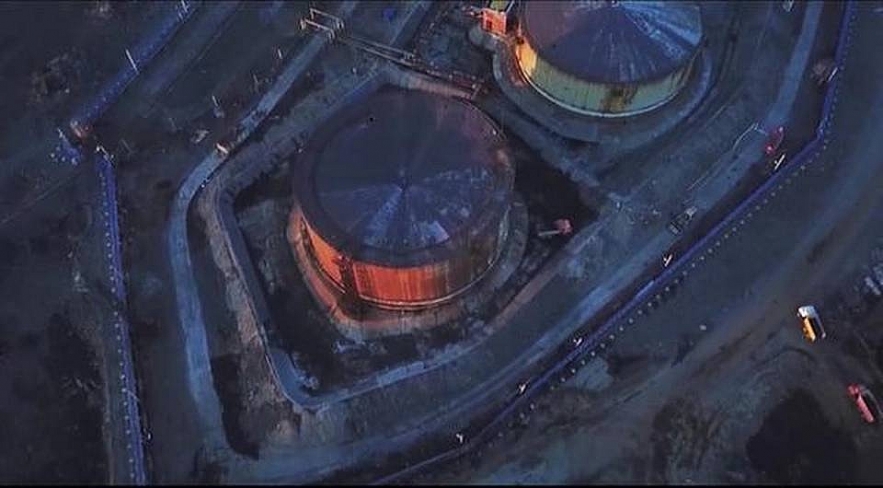 |
| In this image taken from video provided by the RU-RTR Russian television on Wednesday, June 3, 2020, Russian Emergency Situations Ministry trucks work at the scene of an oil spill at a power plant in an outlying section of the city of Norilsk, 2900 kilometers northeast of Moscow, Russia. Photo Credit: AP |
As a precautionary measure, Nornickel is pumping fuel from another nearby reservoir where slight cracks were discovered after the company began an investigation of the accident, said Nornickel First Vice President Sergey Dyachenko. The spill came at a reservoir that was last checked in 2018 in line with regulations, according to Nornickel’s press service.
“Given the issues linked to permafrost, the checks of such reservoirs should be done more often,” said Vladimir Chuprov, project director at Greenpeace in Russia. “The area won’t be able to recover from the accident soon as it is already not possible to fully collect the fuel after such time.”
 |
| Vladimir Putin chairs a video conference meeting on dealing with the fuel spill in the Krasnoyarsk region. Photo: Alexey Nikolsky/Sputnik/AFP/Getty Images |
The company called in a specialist clean-up team from Murmansk, which is pumping out the fuel. The team has so far collected 338 tons of diesel fuel and removed 1,450 cubic meters of soil, Nornickel’s press service said.
Siberia fuel spill threatens Russia's Arctic ambitions
The spill could cost hundreds of billions of roubles and pollute the aquatic ecosystem for more than a decade, according to Russian officials. Environmentalists say the disaster, one of the largest in modern Russian history, is comparable in scale to the Exxon Valdez oil spill in 1989, when 37,000 tons of oil leaked off the coast of Alaska.
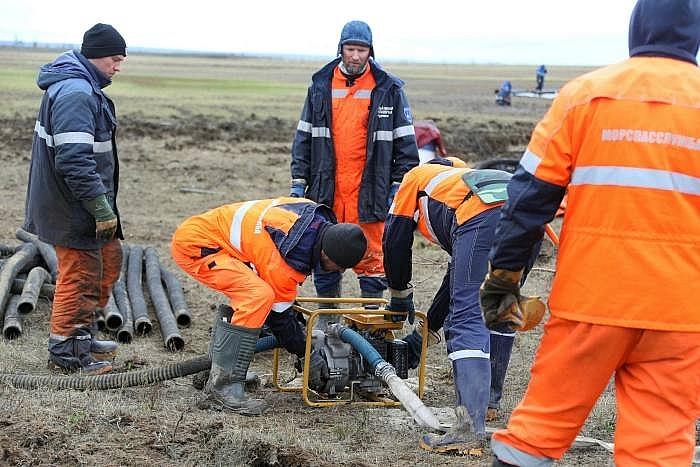 |
| Emergency workers at the site of the huge diesel fuel leak. Photo: REUTERS |
It also highlights the threat that climate change poses to industry in the Arctic, where temperatures well above the global average have melted the permafrost atop which Russia extracts the Siberian hydrocarbons and precious metals that drive its economy. “This is a very serious signal for the Arctic,” said Boris Morgunov, dean of the ecology faculty at Moscow’s Higher School of Economics. “Everything we build in the Arctic carries a far greater risk for the environment.”
Abnormally high temperatures in recent years are warming the carbon-rich soil, releasing methane gas into the atmosphere that accelerates the pace of climate change further still, said Vasily Yablokov, head of Greenpeace Russia’s climate change division.
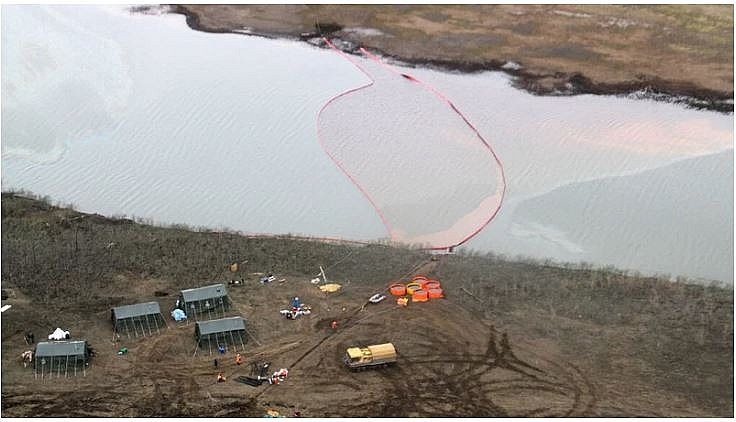 |
| A large red spillage in the Ambarnaya river. Photo: rte.ie |
Like those at Norilsk, a city of 180,000 located 300km north of the Arctic Circle, many of Russia’s richest deposits are located in isolated parts of Siberia. This requires companies to transport fuel to remote power stations and makes it significantly more difficult to launch clean-up operations. “There’s a lot of infrastructure in the Arctic, and it’s all under threat,” Mr Yablokov said. “These accidents will happen again if you combine all those factors.”
The spill is only the latest environmental disaster to beset Norilsk, whose first smelters were built by prisoners in Joseph Stalin’s Gulag. Norilsk is the world’s largest emitter of sulphur dioxide, a component of acid rain, and admitted in 2016 that iron slurry from the smelters had turned the Daldykan river blood red. Mr Morgunov said the disaster would probably force Russia to improve the safety of its industrial infrastructure in polar regions. “Business won’t like it, but it’s essential to save the Arctic,” he said.
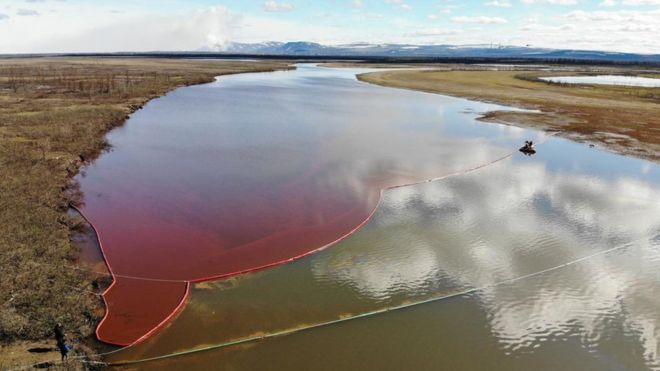 | Huge fuel spill inside Arctic Circle, Russia's Putin declares state of emergency Russia's President Vladimir Putin has declared a state of emergency after 20,000 tonnes of diesel oil leaked into a river within the Arctic Circle. The ... |
 | Vietnam donates medical masks to Vietnamese community in Russia Vietnam has sent medical masks to the Vietnamese community in Russia with a view to assisting them to deal with complex developments of COVID 19 ... |
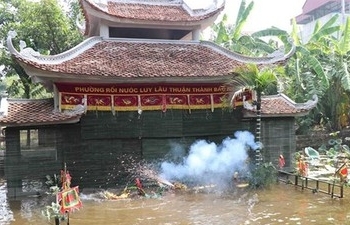 | Debut of national showroom marks Vietnam-Russia Friendship Year As a way of celebrating the ongoing Vietnam Russia Friendship Year the orientation museum in Moscow Russia took to Instagram to post about the opening ... |
Recommended
 World
World
Pakistan NCRC report explores emerging child rights issues
 World
World
"India has right to defend herself against terror," says German Foreign Minister, endorses Op Sindoor
 World
World
‘We stand with India’: Japan, UAE back New Delhi over its global outreach against terror
 World
World
'Action Was Entirely Justifiable': Former US NSA John Bolton Backs India's Right After Pahalgam Attack
Popular article
 World
World
US, China Conclude Trade Talks with Positive Outcome
 World
World
Nifty, Sensex jumped more than 2% in opening as India-Pakistan tensions ease
 World
World
Easing of US-China Tariffs: Markets React Positively, Experts Remain Cautious
 World
World


